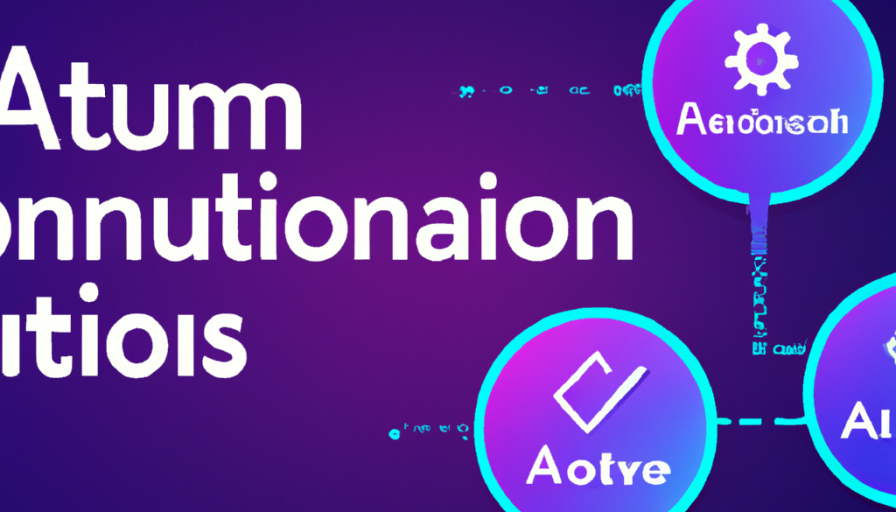AI Business Automation Strategies
In today’s fast-paced business environment, leveraging artificial intelligence (AI) has become a necessity for organizations seeking to streamline operations and boost productivity. AI-driven automation strategies are revolutionizing the way businesses operate, allowing them to optimize processes, make data-driven decisions, and enhance customer experiences. In this article, we will explore various AI business automation strategies that can empower your organization to stay ahead of the competition.
1. Intelligent Chatbots for Enhanced Customer Support
One of the most popular applications of AI in business automation is the use of intelligent chatbots. These virtual assistants utilize natural language processing and machine learning algorithms to understand and respond to customer queries in real-time. Implementing AI-powered chatbots allows businesses to provide round-the-clock support, improve response times, and enhance customer satisfaction. Additionally, chatbots can automate repetitive tasks, such as order tracking or basic troubleshooting, freeing up human resources for more complex and critical tasks.
2. Predictive Analytics for Data-Driven Decision Making
The ability to make informed decisions based on data is crucial for any business to thrive. With AI-driven predictive analytics, organizations can analyze vast amounts of data to uncover valuable insights and trends. By leveraging machine learning algorithms, businesses can predict customer behavior, identify market trends, and optimize operational processes. These data-driven insights enable organizations to make proactive business decisions, improve operational efficiency, and identify new revenue opportunities.
3. Robotic Process Automation (RPA) for Streamlined Operations
Robotic Process Automation (RPA) is another powerful AI-driven automation strategy that aims to automate repetitive and rule-based tasks. RPA software bots can mimic human actions, such as data entry, form processing, or invoice generation. By implementing RPA, organizations can streamline operations, reduce errors, and improve efficiency. This automation strategy enables employees to focus on high-value tasks that require creativity and critical thinking, ultimately driving productivity and innovation across the organization.
4. Personalized Marketing Campaigns with AI
AI-powered marketing tools have transformed the way businesses engage with their customers. By leveraging AI algorithms, organizations can analyze customer data, preferences, and behavior to deliver highly personalized marketing campaigns. AI-driven tools can segment customer data, recommend personalized products or services, and even automate email campaigns. This level of personalization enhances customer engagement, boosts conversion rates, and maximizes the effectiveness of marketing campaigns.
5. Cybersecurity Automation for Enhanced Data Protection
In the digital age, protecting sensitive data has become a top priority for businesses. AI-powered cybersecurity automation can significantly strengthen an organization’s defense against cyber threats. Machine learning algorithms can identify patterns and anomalies in network traffic, detect potential threats, and respond in real-time. By automating security protocols, organizations can minimize response times, reduce human error, and proactively mitigate potential risks.
6. Supply Chain Optimization through AI
AI-driven automation strategies can also optimize supply chain management, a critical aspect of any business. By leveraging AI algorithms, organizations can predict demand, optimize inventory levels, and streamline logistics. AI-powered supply chain optimization enables businesses to make accurate demand forecasts, minimize stockouts, and reduce operating costs. Additionally, AI can analyze real-time data to identify potential bottlenecks and optimize transportation routes, further enhancing overall supply chain efficiency.
7. Voice Assistants for Hands-Free Productivity
Voice assistants, powered by AI, have gained immense popularity in recent years. From Siri to Alexa, these AI-driven virtual assistants can perform various tasks, such as scheduling appointments, answering queries, or playing music. In a business setting, voice assistants can improve productivity by providing hands-free access to information and performing simple tasks. Voice-controlled automation streamlines workflows and allows employees to accomplish tasks more efficiently, ultimately improving overall productivity.
In conclusion, AI business automation strategies are transforming the way organizations operate and thrive in today’s competitive landscape. By leveraging intelligent chatbots, predictive analytics, robotic process automation, personalized marketing campaigns, cybersecurity automation, supply chain optimization, and voice assistants, businesses can streamline operations, boost productivity, and enhance customer experiences. Embracing AI-driven automation is not just a trend but a necessity for businesses looking to stay ahead and seize new opportunities in the digital age.
Note: This article is written in Markdown format.


